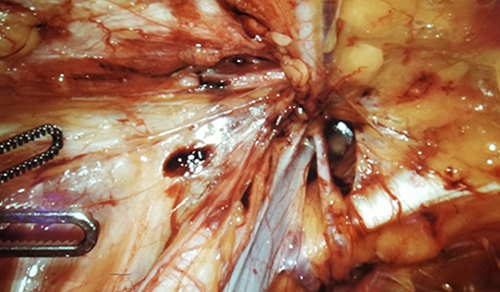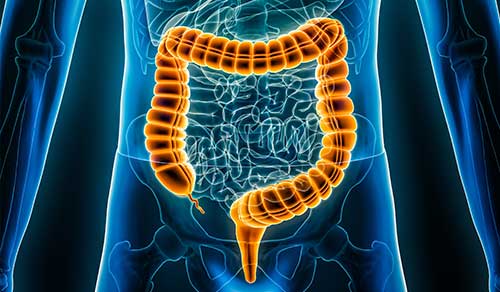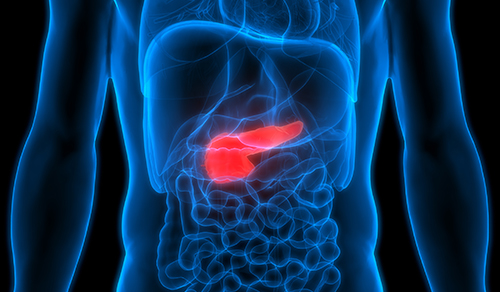Augmenting Understanding of SARS-CoV-2 in Pregnancy
NewYork-Presbyterian obstetricians and gynecologists continue to investigate COVID-19 and its potential impact on pregnancy outcomes. Following are recent studies by the Departments of Obstetrics and Gynecology at NewYork-Presbyterian Hospital that provide insight into two areas of concern: serial testing for SARS-CoV-2 in hospitalized antepartum patients and the antibody response of COVID-19 messenger RNA vaccination in pregnant patients.
The Results of Regular SARS-CoV-2 Testing
During the first wave of COVID-19 in Spring 2020, the Department of Obstetrics and Gynecology at NewYork-Presbyterian/
During the second wave beginning in October 2020, there were concerns that hospitalized pregnant patients could be within the SARS-CoV-2 14-day incubation period on admission or could become infected by asymptomatic support persons. To that end, the hospital instituted polymerase chain reaction (PCR) testing for SARS-CoV-2 via nasopharyngeal swabs every five days for all hospitalized patients at >23 weeks’ gestation. From November 23, 2020 to March 3, 2021, a total of 169 swabs were performed on 72 patients, none of whom became SARS-CoV-2 positive during their hospitalization. Patients were retested an average of 2.34 times.
Despite allowing visitors to the antepartum unit during a period of high local positivity rate for SARS-CoV-2, hospitalized pregnant patients did not become infected. The researchers contend that this may be due in part to the effectiveness of visitor screening for COVID-19 symptoms coming into the hospital, the self-monitoring of symptoms by patients’ family members, universal masking, social distancing, and hand hygiene.
The Columbia researchers plan to continue testing all admitted pregnant patients for SARS-CoV-2 and to perform a second test on the fifth day of admission if a patient is admitted during the virus incubation period. They also plan to perform subsequent testing for SARS-CoV-2 for patients with any signs, symptoms, or exposure to the virus prior to delivery.
Read More
Serial Surveillance for SARS-CoV-2 in Hospitalized Antepartum Women. Zork NM, Markan A, Sheen JJ, Aubey J, Saiman L, Goffman D. American Journal of Obstetrics and Gynecology. 2021 Apr 24:S0002-9378(21)00451-8.
COVID-19 Vaccinations and Antibody Response
As pregnant patients were excluded from the early clinical trials of COVID-19 vaccines, the immunologic response to vaccination in pregnancy and the transplacental transfer of maternal antibodies were not well understood. Seeking to shed light on this important issue, maternal-fetal medicine specialists at NewYork-Presbyterian/Weill Cornell Medical Center collaborated with colleagues in Pathology and Laboratory Medicine on a study involving 122 pregnant patients who reported receiving one or both doses of a messenger RNA (mRNA)-based COVID-19 vaccine and gave birth between January 28 and March 31, 2021.
The Weill Cornell researchers conducted testing against S-receptor binding domain on maternal peripheral blood to identify antibodies mounted against the vaccine and on umbilical cord blood to study passive immunity. They also examined the relationship between immunoglobin (Ig)G antibody levels and time elapsed since vaccination.
At delivery, 55 pregnant patients had received one dose of an mRNA vaccine and 67 had received both doses. All the patients tested negative for SARS-CoV-2 infection using reverse-transcriptase polymerase chain reaction on nasopharyngeal swabs, and all pregnant patients and newborns were asymptomatic at birth and until time of discharge.
The results of the study, which were published in the April 28, 2021, issue of Obstetrics and Gynecology, included the following:
- 87 patients tested at birth produced an IgG response
- 19 patients produced both an IgM and IgG response
- 16 patients had no detectable antibody response
- By four weeks after the first vaccine dose, all patients and cord blood samples, except for one, had detectable IgG antibodies
- 44 percent of cord blood samples from patients who received only one vaccine dose had detectable IgG, whereas 99 percent of cord blood samples from patients who received both vaccine doses had detectable IgG
The Weill Cornell Medicine researchers found that messenger RNA-based COVID-19 vaccines in pregnant patients led to maternal antibody production as early as five days after the first vaccination dose and transplacental transfer of passive immunity to the neonate as early as 16 days after the first vaccination dose. The authors also concluded that “the increasing levels of maternal IgG over time and the increasing placental IgG transfer ratio over time suggest that timing between vaccination and birth may be an important factor to consider in vaccination strategies of pregnant patients.”
Read More
Antibody Response to Coronavirus Disease 2019 (COVID-19) Messenger RNA Vaccination in Pregnant Women and Transplacental Passage into Cord Blood. Prabhu M, Murphy EA, Sukhu AC, Yee J, Singh S, Eng D, Zhao Z, Riley LE, Yang YJ. Obstetrics and Gynecology. 2021 Aug 1;138(2):278-280.






